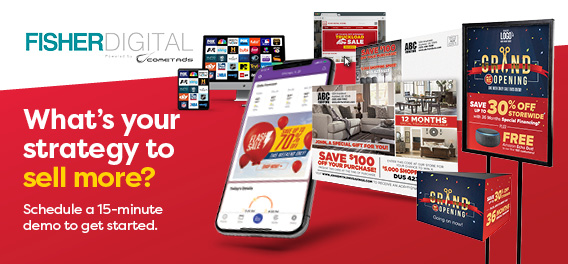What do Consumers Think About Companies?
November 26, 2018The Facebook security breech that compromised almost 50 million accounts. Sexual harassment scandals in tech companies. Discrimination allegations from Airbnb customers.
In this fast-changing climate populated with stories of corporate scandals, how do consumers really feel about companies?
We delve into the topics of consumer trust, loyalty and expectations in this article to get a better sense of consumer perceptions. We will also touch on corporate social responsibility and conclude with a roundup of which brands customers prefer.
How Much Do Consumers Trust Companies?
Consumer faith is businesses remained static from 2017 to 2018, according to findings from the 2018 Edelman Trust Barometer.
Just over 1 in 2 people, or 52% of the population, trust businesses. But that doesn’t mean consumers trust just any business—they place their trust in select sectors.
The top 3 most-trusted sectors are:
• 75% technology
• 70% education
• 68% professional services
The 3 least-trusted sectors are:
• 54% financial services
• 60% consumer packaged goods
• 62% automotive
Key Finding: Almost half the population doesn’t find businesses trustworthy. Leverage your channels to open the lines of clear communication to foster trust between your business and your customers.
Anatomy of Successful Loyalty Programs
Customers who are loyal to a particular brand/company spend 67% more than new customers. What drives customer loyalty?
Examining consumers’ preferences when it comes to rewards programs shows insights about what elements of the shopping experience customers prioritize. The Loyalty in the Age of the Connected Consumer report from Kobie Marketing has a wealth of data to unpack. (The rest of the data in the loyalty section is from this report.)
Earning points to redeem for rewards is huge—3 in 4 consumers actively earn and redeem points in 3 or fewer rewards programs. 86% of consumers cite earning points for reward redemption as the top reason they would return to a brand. 38% of consumers ranked joining a rewards/loyalty program to redeem prizes or discounts as their top reason to return to a brand they stopped patronizing.
Just 34% of consumers rank price as the top reason they return to a brand.
Of all the generations, Generation Z is the most likely to return to a brand to make a purchase but the least likely to join a loyalty program. Gen Z-ers are loyal to companies that they trust. The top barriers to Gen Z joining loyalty programs include:
• 40% too many purchases to redeem points
• 33% cost associated with joining
• 28% brand asks for too much information
• 28% process takes too long
• 25% doesn’t see benefits
Millennials prioritize convenience, low prices and perks like free shipping or birthday freebies. The top reasons Millennials join loyalty programs are:
• 86% collect and redeem points for rewards
• 78% access to discounts
• 50% other perks
• 28% convenience
• 19% status of being a loyalty member
• 14% to help a school/community cause
Gen X are the biggest fans of loyalty programs among all the generations. The top reasons Gen Xers return to brands include:
• 31% quality
• 30% price
• 10% feels loyal to brand
• 10% ease of shopping experience
• 8% belongs to loyalty program
• 7% free shipping
Baby Boomers are more concerned with quality and price than the other generations. The main reasons Boomers and the Silent Generation return to brands are:
• 32% price
• 28% quality
• 13% belongs to loyalty program
• 10% ease of shopping experience
• 8% free shipping
• 5% feels committed to the brand
Key Finding: Loyalty programs that are built upon earning and redeeming rewards work best on Millennials and Gen X. Targeting loyalty programs to Gen Z would be a frustrating and likely wasted effort.
Meet Consumer Expectations to Make Repeat Customers
Generally speaking, consumers expect businesses to safeguard their privacy, drive economic prosperity and provide jobs and training.
Specifically speaking, shoppers expect companies to treat them with care, make themselves available on multiple channels and provide 1 consistent answer to questions, according to findings from the 2018 Customer Service Expectations Survey from Gladly.
Customers want to be humanized and remembered. About 6 in 10 customers feel like they are treated more like tickets than people. 76% of consumers want companies to remember who they are.
Most consumers use an average of at least 3 channels to contact the business they patronize. Consumer engagement by channel is as follows:
• 82% phone
• 62% email
• 43% live chat
• 30% in-person
• 25% social media
• 22% SMS
Maintaining a presence on multiple channels alone doesn’t cut it. 78% of consumers say that omnichannel support is rare/never happens. 76% receive conflicting answers when they reached out via a different channel or spoke to another company employee. And 98% of consumers try to bypass an automated voice response system so they can speak directly to a human on the phone.
Customer service factors into whether or not consumers will patronize a business. 54% of consumers make decisions based on customer service. 68% will pay more for products/services from a company with a record of good customer service.
Poor customer service drives them away. 92% of consumers will switch to another company after 3 or fewer bad experiences and 26% switch after 1 bad experience.
The way companies handle returns and delivery drastically influences whether a consumer will patronize a business again. The Connecting Shoppers in the Age of Choice report from Navar uncovered some interesting data around these topics.
Shoppers expect business to be transparent and flexible with their return processes. Customers also expect the process to be easy. 76% of shoppers will give repeat business to a store that makes returns/exchanges easy. 67% choose to return online purchases through the mail but 1 in 4 customers won’t buy something without the option to return it to a brick and mortar store.
Shipping speed and accuracy matters. Almost 8 in 10 customers (77%) will give repeat business to a retailer that resends lost/damaged items with expedited shipping. 54% of shoppers will give repeat business to a store that accurately predicts the date their packages will be delivered.
Key Finding: Customer satisfaction rides on several factors! Survey customers to find out what your business is doing well and which areas you need to improve in.
Corporate Social Responsibility
Companies who are open about their corporate social responsibility (CSR) practices gain customer trust and loyalty. Although Millennials and Gen Z are often credited with propelling interest in the social and environmental impact companies have, 86% of all consumers expect companies to act on social and environmental issues.
60% of consumers believe that conserving natural resources contributes to a company’s reputation for sustainability. Other ways companies can show their reputation for sustainability include:
• 53% consumers say providing goods or services that are certified
• 52% consumers say creating local jobs
• 51% consumers say supporting environmental or social causes
• 47% consumers say supporting the community
• 47% consumers say offering affordable goods or services
How do consumers learn about company’s CSR practices? 49% rely on the news media; 34% of adults depend on word-of-mouth and 33% of adults utilize social media and company blogs.
Key Finding: What CSR practices does your company practice? Are you communicating these to your customers? Some topics to consider to help generate some communication points: local hires contributing to the community, recycling programs and ways your company is reducing its footprint.
Favorite Brands
Which brands do consumers prefer?
Most 5 relevant brands in the US in 2018:
1. Apple
2. Amazon
3. Pinterest
4. Netflix
5. Android
Most loved brands by young adults ages 18-29:
1. YouTube
2. Google
3. Netflix
4. Amazon
5. Sony
6. Pixar
7. Hershey
8. UPS
9. Dollar Tree
10. Colgate
11. Kellogg
12. Nike
55% of Millennials think Nike has strong, positive values
13. Warner Bros Entertainment
14. Microsoft
15. Home Depot
58% of Millennials think Home Depot has strong, positive values
16. Target
17. Samsung Electronics
18. Pillsbury
19. Tostitos
20. FedEx
21. Dove
63% of Millennials think Dove has strong, positive values
22. Visa
23. Lego
24. Subway
25. Walt Disney
Key Finding: Take inspiration from these brands and companies that rate so highly with customers. What are they doing that customers find so endearing?

